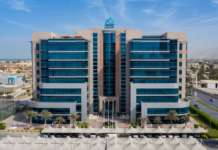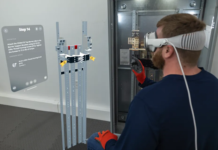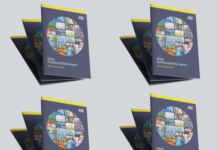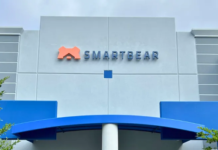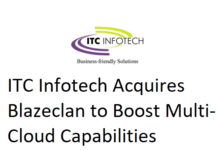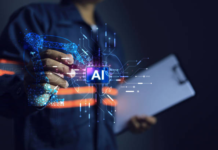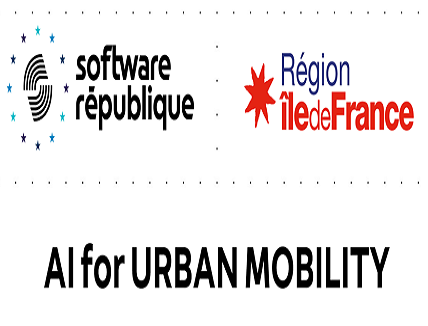
- The Software République offers innovators and start-ups from all over the world the opportunity to imagine a mobility service, using the Artificial Intelligence (AI), based around the use of light vehicles in the Île-de-France Region (France).
- At stake? Up to €500,000 in subsidies offered by the Région Île-de-France. The winner will also join the unique tailor-made Software République incubator program to assist in developing their project with the aid of the skill set of the six founding partner companies.
- Candidates can register from January 5 to February 10, 2023, via this link.
Éric Feunteun, COO of the Software République and Valérie Pécresse, President of the Région Île-de-France (France), officially launch “AI for Urban Mobility” the sixth challenge of the Software République, from the CES (Consumer Electronics Show), one of the most important exhibitions dedicated to technological innovation.
The “AI for Urban Mobility” challenge
This Call for Projects is aimed at researchers, innovators, start-ups, and anyone who knows how to process data and wants to improve urban and peri-urban mobility in the Île-de-France region.
The objective is to imagine an innovative mobility solution with AI around the light vehicle by proposing:
- Solutions facilitating intermodality and facilitating passenger travel experience between public transport and light electric vehicles.
- New car-sharing services.
- Services to optimise and facilitate the use of charging stations / electric infrastructures.
- Solutions for organising last-mile logistics.
- And more generally, any service that will facilitate increased use of cleaner mobility solutions around Mobilize vehicles and public transport.
A “powered by Mobilize” initiative
The project must be based on the following assets:
- The information comes from “Duo” and “Bento”, the future light vehicles being developed by Mobilize, the Renault Group brand dedicated to new mobility. 100% electric and ultra-compact, Duo and Bento have been designed for the shared mobility of people and goods in urban areas.
- Anonymized and aggregated data from all Renault Group connected vehicles.
With this data, the project should make it possible to optimize travel in urban and peri-urban areas around the concept of Maas (Mobility as a Service).
Up to €500,000 grant from the Région Île-de-France
The jury, composed of members of the six Software République partners and the Région Île-de-France, will essentially select innovative solutions, applicable to the Région Île-de-France and which will also demonstrate a potential for repeatability. Committed to sustainable mobility, the Région Île-de-France doubles the investment proposed by the winner for their project, with a grant of up to 500,000 euros. The challenge prize is also open to international start-ups if they have a project to set up in the Île-de-France region.
“Reaffirmed in our IMPACT 2028 development and innovation strategy, our desire is clear: to make the Région Île-de-France the European leader in strategic innovations. This challenge has a dual purpose: to contribute to the emergence of European leaders in AI applied to industry by offering them the opportunity to collaborate with world leaders in their fields, and to put the potential offered by Artificial Intelligence at the service of major societal issues such as mobility.” Valérie Pécresse, President of the Île-de-France Region
“The winner of the “AI for Urban Mobility” challenge will join the Software République incubator and its tailor-made support program. They will work closely with the six founding partners on their project. The Software République supports entrepreneurs with projects focused on sustainable, secure and intelligent mobility. Start-ups from previous challenges have already been incubated such as Geoflex, Vianova, Wattpark and Basemark.” Éric Feunteun, COO of the Software République
“Artificial intelligence and data are becoming more important in the vision of car manufacturers, which is becoming more technological. We are moving from physical mobility, a vehicle going from point A to point B, to a mobility based on digital technology to optimise and make all journeys more fluid. Our future challenges concern four areas of innovation: electric mobility, connected mobility, autonomous mobility and the development of new mobility services.” Luc Julia, Scientific Director Renault Group



